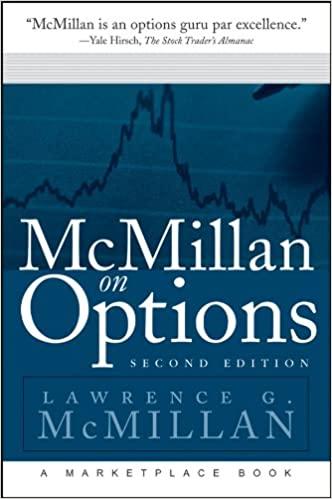Question
Allow me to pose a question that Socrates may have asked: What is ethics, and how is it related to the conscience of our society?
Allow me to pose a question that Socrates may have asked: "What is ethics, and how is it related to the conscience of our society?" Though philosophers around the world no doubt have erudite answers to this question, people with little, if any, knowledge of philosophy use conscience to define ethical norms. But the key here is that our conscience is evolving. Ethics may seem slow to change at times, but it is an important guidepost for the development of our society and always a precursor to the laws we develop. It is quite possible that we are fully within the domain of our laws and yet unethical.
So what are the important ethical questions around microfinance? There are three that are central to the debate:
Is it ethical to do business with the poor or earn profit from poor people?
Is it ethical to maximize profit when doing business with the poor?
Do we have an ethical responsibility to avoid harming poor people in the process?
In my mind, the answer to the first question is yes, you can do business with the poor while earning a fair profit. The answer to the second question is no, you cannot just focus on maximizing profit when doing business with the poor. The answer to the third question is yes, you do have an obligation to your clients.
Allow me to elaborate. To question one: Human beings are economic beings. Self-employment or business activity is what the majority of people do to feed themselves. For hundreds of years, good work was mostly about charity. Societies saw the poor as worthy of our pity but not as hard-working, intelligent, entrepreneurial people. The new paradigm of socially motivated business is using a combination of business and philanthropic ideas to re-shape our system of thinking. Economic development means stability; it also means that people have more freedom to pursue Maslow's hierarchy of humans needs, and thus build ground for political progress that circles back to more economic development. In this way, we can conclude that doing business with the poor is a good thing.
The second question about maximization of profits is more complex. To some extent, it is also very simple. Every dollar in profit that someone makes from poor people comes from the pocket of the poor people. If our objective is to stabilize the lives of poor people, whose income is volatile, we have to make sure that as much as possible of their hard-earned profit stays with them so that they can build assets and create security. The challenge is finding the balance between attracting investors and maintaining healthy microfinance institutions. Deutsche Bank, where I am a managing director, recognizes that profitability, operating costs, and interest rates can vary greatly depending on the microfinance institutions location, size, growth potential, asset quality, and target market. While the issues are complex, they are not insurmountable. We can use logic and judgment to define what is acceptable for us as social investors, and we can be transparent about our decisions so that others may benefit. In the process, we will certainly make some wrong decisions, but our example may encourage greater profit accountability in others.
While Deutsche Bank recognizes that robust, profitable, well-capitalized, and customer-centric microfinance institutions are necessary for the continued success of the microfinance sector, it also believes in advocating for an industry-wide reduction in client interest rates, which would allow clients a greater share of profits to help build assets.
The third questiondo we have an ethical responsibility to avoid doing harm to customersis an important one, because it requires close attention to customer service and initially may take away from profits. Customer care and ethics are intertwined and inextricably linked. Customer care is crucial to ethics and vice versa. However, every good business in the world recognizes that to be successful, it has to satisfy the customer. More and more, as social investors become interested in maximizing profit and helping the ultimate customer, customer service continues to gain importance. Genuine customer care limits the unintended harm that may occur as we chart new courses. We will make mistakes, but our ethical responsibility to avoid harm is an important beacon as we increasingly engage in business with the poor, with dignity.
Required:
Read the excerpt above and pretend that you are the Manager of a microfinance company in your country and convincingly respond to all three questions posed by the author in the interest of your company. Clearly, explain your stance on each question and use appropriate, sound theoretical research and empirical real world examples in support of your stance.
Step by Step Solution
There are 3 Steps involved in it
Step: 1

Get Instant Access to Expert-Tailored Solutions
See step-by-step solutions with expert insights and AI powered tools for academic success
Step: 2

Step: 3

Ace Your Homework with AI
Get the answers you need in no time with our AI-driven, step-by-step assistance
Get Started


